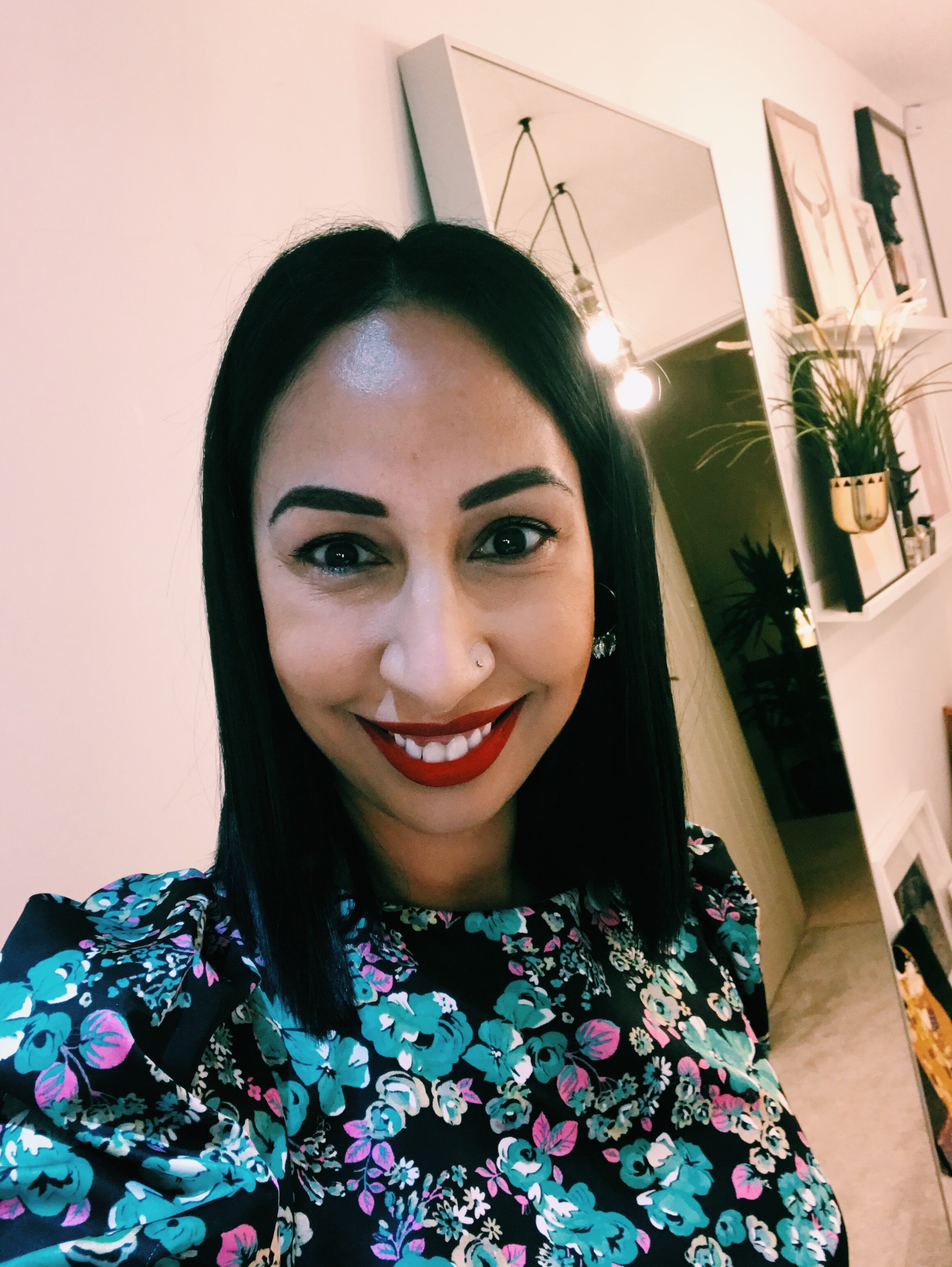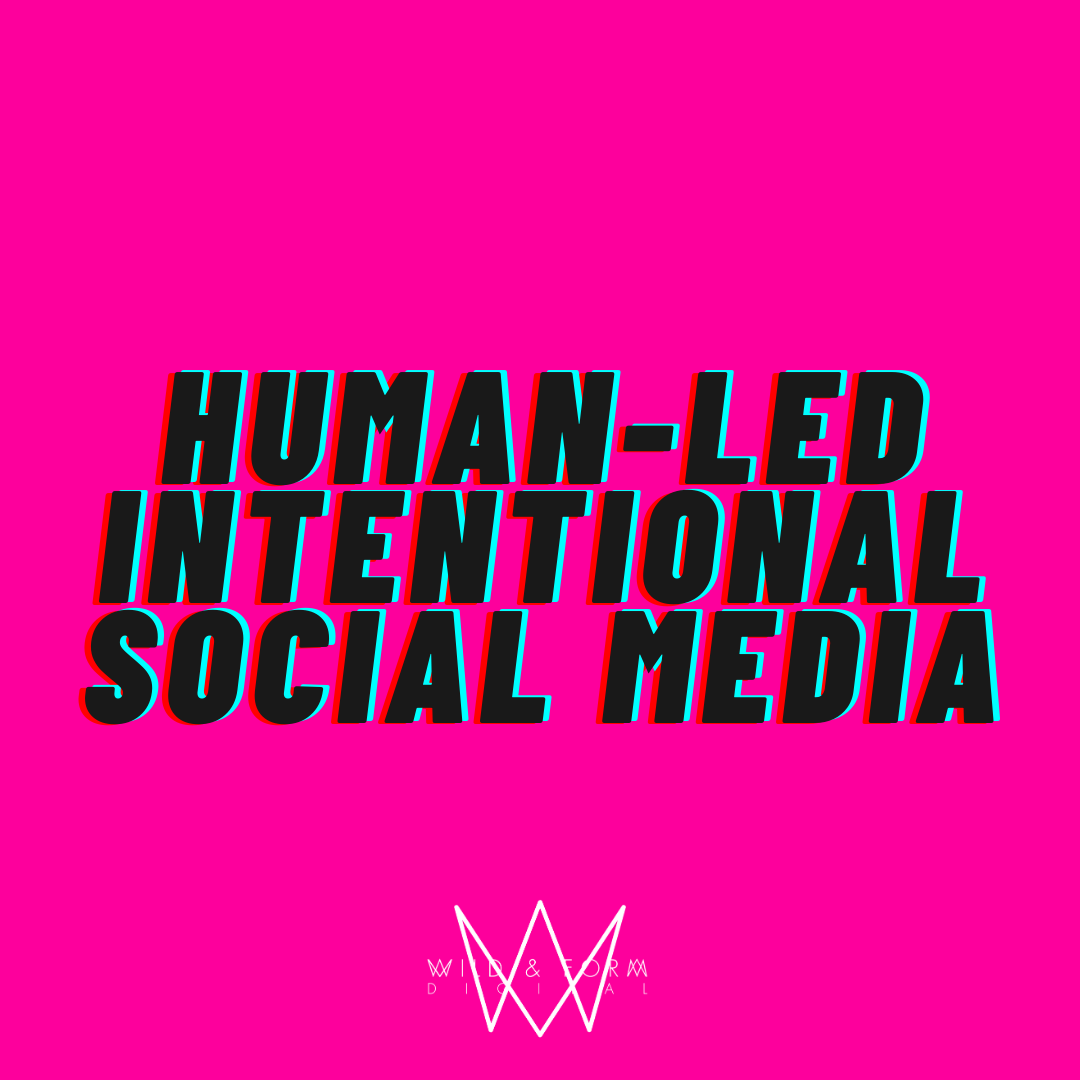Rubbi Bhogal-Wood, Social Media Educator
If you believe much of what we’re told online, you might find yourself thinking there’s only one route to success - live on social media and spend hours trying to conquer the next algorithm or brand new feature. Rubbi Bhogal-Wood passionately believes that doesn’t have to be true.
Based on her refreshing mantra that “you control social, not the other way round”, Rubbi is a social media educator and specialist who embraces the digital world whilst openly acknowledging the pitfalls of social platforms. I talked to her about working with school pupils, how we can all wise up and the potential of social media to tell positive stories for powerful good.
Rubbi, your mantra that “you control social, not the other way round” is so refreshing in a world where we feel social is so dominant. What’s the idea behind that?
It actually came about through my own relationship with social. When I set up my business, I found myself being constantly sucked in and under pressure to have an Instagram grid that looked amazing. I felt my self worth was connected to the increase or decrease of followers and I started to ask what was going wrong. I began to investigate the construct of social which is being summed up quite well through The Social Dilemma, the Netflix documentary.
I love the empowering aspect of social but I don't like that it’s an attention economy where people are the product, having their strings pulled. I did a lot of research and embarked on a six month course to find out how to be more aware and intentional and it really opened my eyes to so many different ideas.
Once I’d found the confidence to talk about this stuff I did a TEDx talk about it and as I was constructing my thoughts for the talk, the idea that we can control social, not the other way round, emerged.
What do you mainly do through your business, Wild and Form Digital?
A couple of things. First, I work with businesses on their social media strategy, training them and helping them. I’ve got all kinds of accessible webinars on my site because if you think that just during Covid, around 75,000 online businesses have emerged and the majority won’t have huge amounts of start-up money behind them. People can come into one of my webinars, learn what they need and take the basics away to get started for themselves.
The second thing I do is all around education in schools. I hold informal workshops for pupils around social media as well as working with schools on their own strategies. It still all comes under the umbrella of that same mantra though. It’s always tied in with that.
What’s really good about social media do you think?
It can be a wonderful space. Think of all of the connections that have been made and the friends that have come through various conversations. I've built a business through that platform and I’ve seen others do the same.
One of the key things that I do, because I've got an education specialism, is to work with young people to prise open the conversation around social. We need to help change the narrative because unlike you and I who've had one foot in an analogue world and one foot in digital, this generation of young people hasn’t.
I worry for their mental well-being, their conversational skills, those human-led, heart-led conversations that by all accounts, when I talk to young people, aren't happening. They feel this huge disconnect and a lot of it is emerging from social media and the fact that they are sucked in to that attention economy without necessarily even knowing it’s happening.
I guess that social media is here to stay, so what we really need to do is teach our kids, and ourselves, the integrity we need to use it wisely?
Yes, I think fighting against it just doesn't work. It puts up so many barriers and if there's one area where you need open communication, it’s within that digital world.
We can conquer it together with our kids, just talk about it, set up those values and intentions together. If need be, as parents, we’ll have the final word but let’s open up discussion about integrity and how much we’re interacting with social media and what we want to get from it because there can be positives.
One of the saddest things somebody said to me was that their parents were always telling them to get off the phone but when they put it down, everyone else was still on a screen and really defensive about that. It was a very mixed message. When the child put the phone down they saw that actually no one had time for them.
Families need to model and create boundaries together. Maybe it’s about not having devices at a meal time or your kids creating a tech box and everyone’s devices going into it at a certain time of night. You can’t ban this stuff entirely and we shouldn’t have to. Let’s face into it but be realistic at the same time.
It's really good to hear you put those positive things across. How exactly do you do your work with children? Are you going into schools to do that?
Yes, at the moment we're doing things virtually but usually I meet in person for ‘Fireside Chats’ where the idea is that me and half a dozen young people, ranging from Year 5 up to Year 8 get together for a super-casual conversation.
We'll just sit and discuss openly. I let them know I won’t be reporting back to anybody, although for safeguarding there’s usually a teacher in the room, but I let them know I’m not writing a report. Whatever we discuss there isn’t going outside the room and if someone is brave enough to be vulnerable and open up, none of us are going to repeat that outside. It’s about creating that safe environment.
In actual fact, it usually turns out that young people don’t always want to be on social but they fear missing out. It’s a FOMO experience.
There’s also a theme around them wanting to have certain conversations about personal things with their closest friends but not feeling able to do that in person. So they’ll text or talk to people they’ve met on social.
Pupils love having that time and space to think everything through. If there are periods of silence we let them hang because I really want them to think and not have to speak until they’re ready.
What's your favourite platform? And who do you love to follow?
It’s Linkedin for me. When Microsoft bought them a few years ago, they really changed things up which I thought was important for 99% of audiences.
It’s great for solo businesses, micro business owners, creators, especially when you have a content mix. I’ve made connections there and asked questions and I think it’s a place where most people can have their voice heard.
When Instagram rolled out reels recently that wasn’t something I enjoyed. I just thought “Oh no… not another feature”. But it all goes back to that mantra, that you control things. You need to be mindful and go back to your purpose before feeling like you have to jump in straight away. You do have a choice.
In terms of who I love to follow, I think Lara Sheldrake from Found & Flourish is great. She leads a female-led community that really nourishes the women that are part of it. Humans of New York is another one of my favourites. Every Sunday I round up 3-5 accounts on my ‘Sunday Social’ on Instagram because there are really so many great things to share.
How can a personality-led, soulful brand still come across well on social media?
I hope that social becomes a space where it’s led by our hearts and a desire to want to feel human. The best accounts realise that social is a place for conversations rather than what it rapidly became initially, people shouting about how great they are.
The best accounts are genuine. They want to show up vulnerably but not overshare and develop friendships over time that are true. They are bringing something that can genuinely enhance someone’s life.
Social media will keep evolving but my hope is that we increasingly create tech from a more intentional point of view. It needs to be more inclusive, more human led. Instead of flashing up notifications to get us back on the platform, it could tell us to put the phone down and go outside instead.




